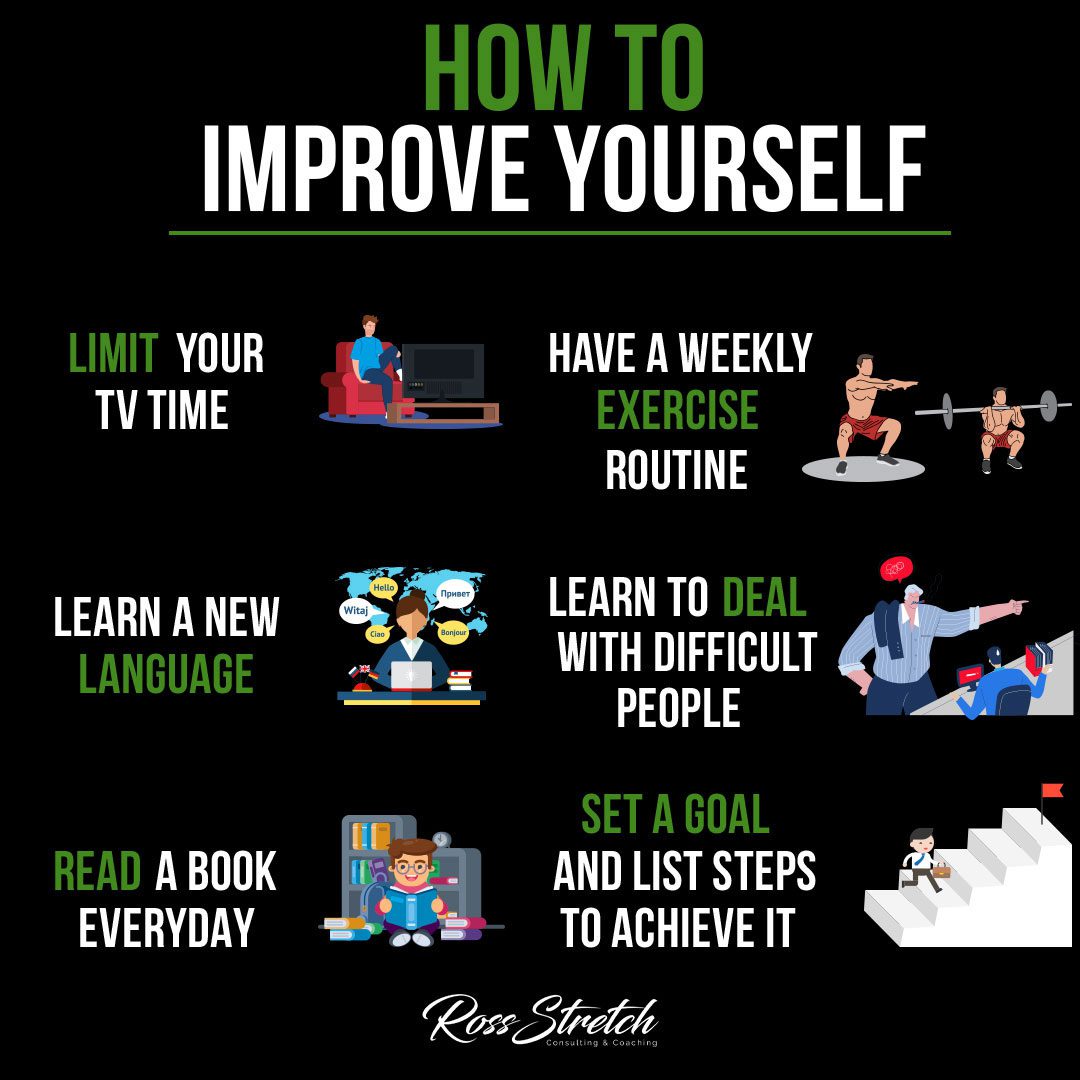In the quest for personal improvement, it’s easy to become overwhelmed by the sheer volume of advice available. However, focusing on key self-improvement strategies can make the journey more manageable and rewarding. This article delves into six essential practices that can catalyze personal growth and lead to a more enriched life.
Making reading a daily habit is an investment in one’s intellectual and emotional health.
Ross Stretch
1. Limiting Screen Time for Increased Productivity
In a world dominated by screens, limiting TV time can have a profound impact on productivity. Excessive screen time is often associated with decreased activity, disrupted sleep patterns, and a reduction in valuable interpersonal interactions.
Strategies to Reduce Screen Time:
- Set Specific Viewing Goals: Decide in advance what you will watch to avoid mindless channel surfing.
- Create Screen-free Zones: Designate certain areas of your home where screens are not allowed.
- Engage in Alternative Activities: Replace TV time with hobbies or activities that contribute to personal growth.
By intentionally reducing screen time, you open up space for activities that can lead to greater personal fulfillment.
2. Establishing a Consistent Exercise Routine
Regular physical activity is a cornerstone of good health and can significantly improve mental and emotional well-being.
Benefits of a Weekly Exercise Routine:
- Enhanced Physical Health: Regular exercise contributes to overall physical fitness and health.
- Improved Mental Clarity: Physical activity has been shown to clear the mind and reduce stress.
- Boosted Emotional Resilience: Exercise can elevate mood and improve self-esteem.
Committing to a regular exercise routine is not just about physical benefits; it’s about cultivating a disciplined, resilient mindset.
3. Learning a New Language for Cognitive Expansion
Acquiring a new language is not only a practical skill but also an excellent way to enhance cognitive abilities and cultural understanding.
Cognitive and Social Advantages:
- Improved Memory: Language learning can improve memory and concentration.
- Cultural Appreciation: Knowing another language opens up a world of cultural experiences.
- Career Opportunities: Bilingualism can increase job prospects and professional growth.
Learning a new language is a pathway to personal growth that enriches both the mind and the soul.
4. Developing Interpersonal Skills with Difficult People
Interacting effectively with difficult people is a critical life skill that can lead to better personal and professional relationships.
Techniques for Dealing with Challenging Interactions:
- Active Listening: Understand the other person’s perspective before responding.
- Emotional Intelligence: Manage your emotions and respond rather than react.
- Conflict Resolution Skills: Learn to navigate disagreements constructively.
Mastering the art of dealing with difficult people can lead to more harmonious interactions and improved mental well-being.
5. Cultivating a Habit of Reading
A regular reading habit can significantly broaden knowledge and improve cognitive function.
Impacts of Daily Reading:
- Knowledge Acquisition: Reading is an effective way to acquire new information and insights.
- Cognitive Stimulation: Regular reading keeps the brain engaged and can slow cognitive decline.
- Stress Reduction: Reading can be a form of escapism that reduces stress and promotes relaxation.
Making reading a daily habit is an investment in one’s intellectual and emotional health.
6. Goal Setting for Directed Personal Development
Setting clear goals and outlining the steps to achieve them is fundamental to personal growth.
Goal-Setting Strategies:
- Specific Objectives: Define clear, actionable goals.
- Measurable Milestones: Set benchmarks to track progress.
- Attainable Steps: Break down goals into manageable steps.
Goal setting is a dynamic process that not only provides direction but also serves as a motivational tool.


